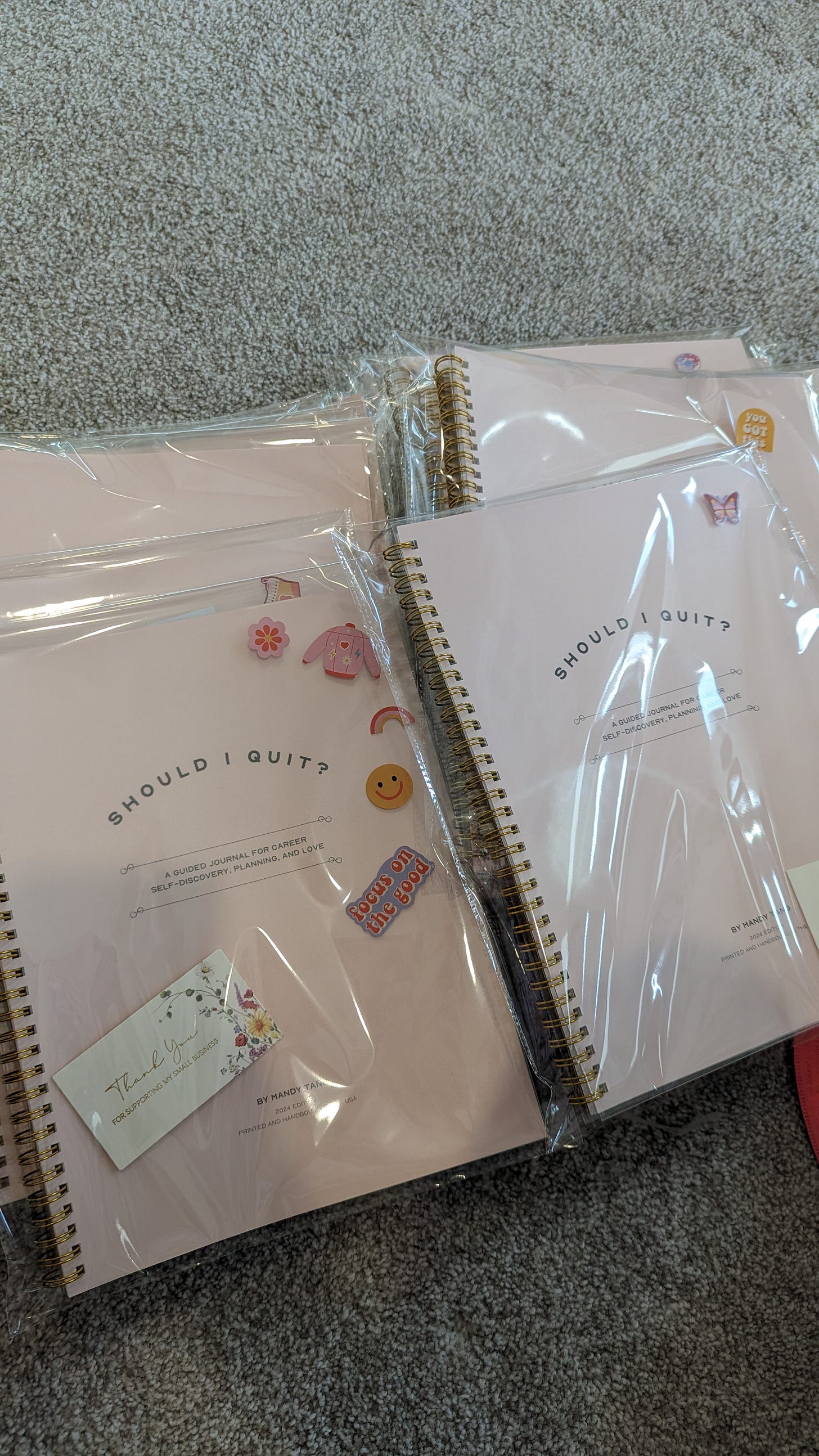Later today, I’ll be joining my friend Sophia Sun (known as @productplaybook on TikTok) for a fun session on managing burnout in the workplace. The official topic is "how do you manage burnout and build emotional resilience,” and it’s hosted by Tech Together and Co.Lab. If you’d like to sign up — it’s a free resource for the community — you are welcome to here.
What is burnout?
Whenever I hear the word “burnout,” I think of cheddar cheese on a sizzling pan; the way it curls up and crisps and turns a dark orange. I imagine all of us walking around as crisp cheese, burned to the core — our deliciousness zapped out of us, all moisture gone, just little piles of hardened goo. You can’t really undo this, either. Once you’re burned, you’re burned. You can try to scrape your toast all you want; it’s still going to taste bitter.
Burnout is someone pushing against you, when inside you are saying, “no.” But you don’t really say no right away because you don’t want to be rude, you want to be a team player, you know it would be good for you to say yes. So you sit in this in between stage, where your insides are like, “ugh I really don’t want to do that,” and your outsides kind of go along with it because:
— You don’t want to make a fuss
— You want to be liked
— You’re afraid of conflict
— It’s easier just to say yes than endure the discomfort of saying no
Our insides want to be consistent with our outsides.
That sounds really simple, but I think that’s 99% of the pain.
For example:
— You mask at work because you’re afraid of being your true, weirdo self. So you button yourself up in a human suit and pretend to be extroverted when you’re really not. Or you mute your opinions because you’re afraid people will think you’re too out there.
— You’re a creative at heart but you’ve never really express that, and so you’ve taken on all of these operational and logistical tasks at work which leave you emotionally exhausted and hollow. You’ve gotten really good at your job, so you don’t want to rock the boat.
— You’ve tried voicing your opinion in the past, but no one really cared or listened to you, or you were told “oh we already tried that and it didn’t work,” or they just stared at you with their beady little eyes. So you stopped trying and the independent mind, the brilliant mind that you have, just sat down and is bored as hell.
People might say, “just be yourself” or “just bring your full self to work,” but you tried that! It turns out Henry from HR doesn’t really want to hear about your obsession with tarot cards — and Jessica from Marketing is on a deadline and doesn’t have time to look at you as you mention caring for your aging parents. We don’t trust what people will do with the information if they really know us. So we stop giving it out.
Burnout, in short, is being sick of trying to be someone you’re not.
How do you fortify your resilience? More importantly, should you? Is the question how can I get better at drinking this sickly green soup? Or, is it about refining your palette, and proclaiming once and for all, that you don’t like green soup. The first step is to regain control over your own likes and dislikes. I don’t like this soup! Is something you could say, at first.
You have to get better at recognizing your own voice. Respecting your own sense of taste. Owning up to the fact that you have good taste, and that your taste matters. It’s okay not to like certain things. It’s okay to think something is gross.
Play along with me here.
It’s like being at a restaurant where they specialize in shrimp, but you don’t like shrimp. You just don’t like the taste. It’s too ocean-y and salty and there’s something about the little black spine that’s gross. But every day, someone comes up to you, and is like “hey, can you eat 10 shrimps?” I know this is a ridiculous example (also: personally, I love shrimp and can overlook the spine thingy), but you would most like just say, “no, thanks I don’t like shrimp.”
You’re not going to let someone gaslight you! A co-worker looks at you disapprovingly, mouthing, “of course you like shrimp.” Or the CEO tries to convince you that hey, pretty baby, this isn’t really shrimp, it’s just a tiny lobster and you should really try some. NO! “I don’t like it!” you scream, holding onto and shaking the metal bars of your life. I’m not going to eat it. And certainly not ten.
Imagine this: every day, you have to go to work and politely refuse the shrimp. AND YET your boss serves you shrimp sandwiches and shrimp kabobs. You come home, your back aching, picking shells out of your shoes. This would be exhausting. Day after day, you had to keep telling people no, really, I am not that interested, thank you kindly.
One day you would just wake up and explode. And that’s what happens!
Yes. It’s called rage quitting. Rage quitting is having one shrimp too many.
Boundaries
If you want to know the truth, it’s about boundaries. First, most people just don’t set them. We’re too nice. Too optimistic. We don’t want to be hysterical, needy, uptight. We just want to go with the flow, see how things land.
But setting a boundary is a good thing. Imagine a bright line, in a circle, with you standing in the middle. Everything inside the line is cherished: it’s beautiful, you take care of it, you take great pride in it, you follow through on your word. That’s your “yes” pile.
Everything outside of the line, it’s well, outside. We don’t have to care about that. It’s not yours. Don’t pick it up and bring it inside. Just leave it there. We try not to fret, emotionally, about the things that live on the outside. And that’s all boundary setting is doing — it’s just setting up a quaint, pretty circle around yourself and saying, quietly or loudly, here’s my line.
You can be running a project that you care about. That you have deep passion for. That you are committed to seeing through until the end. And at the same time, you can have a “no” pile, even within the project. I’ll work my ass off on this project, you can say, but at the same time I’m going to stop checking emails at 7 pm. And I won’t give out my personal phone number, so email is the best way to reach me.
In this way, you can learn to say yes and no at the same time. This isn’t because you’re unreasonable or mean. It is a sustainability strategy. It is a way that you can keep going without dying. It is a way for you to stay at this job without melting into a hot lava pile of resentment.
People will test your boundaries, just like children and kittens. They poke and prod to see how firm they are, to test you. Will she bite? And you may protest: “they’re always pushing me — I can’t say no.” Except here is the rub: you can. And you should. If you never say no, they’ll never stop. Capitalism is set up to take, take, take. It’s not a bad thing, inherently — it’s simply the nature of it.
Anyone who gets upset with you for setting a boundary, they’re just stung. They’re not used to having someone doing that. So they revert back to a bit of pissy behavior. Tactics, small threats, small digs to your ego and your integrity, to try and get you to change your behavior. And because we’re generally terrified of conflict, we are used to saying yes just to make the whole thing go away. Next time, don’t.
Reframe the Ask
So when people ask for unreasonable things, and you feel that growling anger in your stomach (“fuck them,” “how dare they,” “here we go again”) let’s be productive. Turn that anger into an ask. Explore first, to yourself — in a journal perhaps — what you want from them. What are your terms and conditions?
Someone asks you: “can I get on your calendar in the next day or so?” and you think to yourself — who do they think they are? Just commandeering my time and making their priorities my priorities? Slow down. Engage in a line of questioning, which might sound like:
What is making this so triggering to me?
Is this a reasonable request? If not, why not?
What could we do to make it reasonable?
What is the timeline I’m comfortable with?
Am I even the right person to do this? If not, could we direct it to someone else more capable or more available?
Is this my boss asking me for this? Would it be wise politically for me to accept? If I do, I’ll have to re-prioritize something else. What is the most efficient way to communicate this to them?
You might say to yourself, “Mandy, I’m exhausted already. I don’t have time to go through these lengthy questions every time.” Do you know what the alternative is though? You either accept hastily and with a great deal of resentment; or you ignore it and hope it goes away; or you burn the whole place down. I’m kidding. But YOU KNOW WHAT I MEAN. Truly, those are the things that most people do. So try the reframe, my love!
I hope these thoughts are helpful. Feel free to leave a comment below!
xo
Mandy aka Career Coach Mandy
PS. If you’d like a resource to help you wade through the question of “Should I Quit?” my journals are still available on my website for $28! I basically go to the post office every single day and have never been happier. You can follow along for step-by-step video instructions on this TikTok playlist.






